
Golf Cart Battery Fleet Maintenance at Lionhead Golf Course
- 17 Nov, 2023
How Does this Famous Canadian Golf Course Manage so Many Golf Cart Batteries?
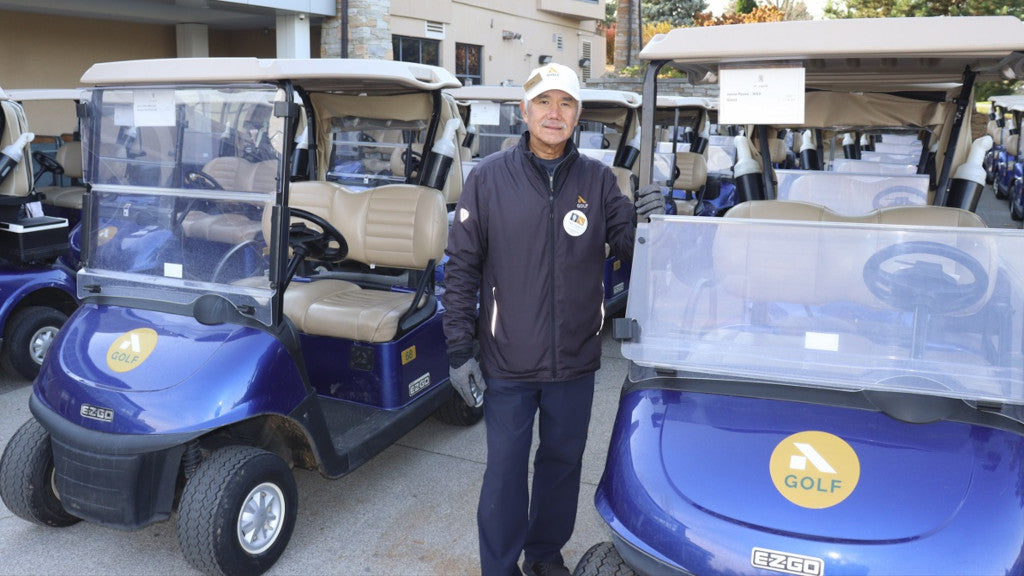
Voltloop visited Lionhead Golf Course, just west of Toronto on the 2nd of November 2023 and found the business winding down, preparing for winter. The clubhouse will be closed when the first snowfall blankets the grounds.
The clerk in the Pro Shop happily reported good conditions all week, and the general manager let us know there were still plenty of bookings, but it was cold and windy that Friday and the few players we observed wore thick jackets.
Kaneff Conference Center crowns Lionhead Golf clubhouse. The banquet halls and meeting rooms above the clubhouse total 23,000 square feet of elegant space and will continue to operate throughout the winter when the golf course is buried in snow. At this time of year, early November, most of the golf pros have already departed for sunnier climates, and Iggy’s Restaurant is closed.
Some readers might find an off-season visit to a famous Canadian golf course a little unusual. We were not there to play a round of golf, or to use their high-tech golf swing analyzing equipment, or to enjoy lunch at Iggy’s, but rather, we came to observe firsthand how this business puts their golf cart batteries to bed for the winter.
 Lionhead Corporate Centre is located at 8501 Mississauga Road, Brampton. Photo courtesy of Lionhead Golf
Lionhead Corporate Centre is located at 8501 Mississauga Road, Brampton. Photo courtesy of Lionhead Golf Lionhead’s Golf Carts have Lithium Batteries
Lionhead’s cart boss keeps forty golf carts charged and ready for use on the northside of the building where it’s even chiller this time of year because of how the clubhouse shades the drive. Even with the golf season winding down, there’s no waiting at his station because the golf carts are booked in advance and each cart has a laminate envelope displaying the name of rental party affixed to its top rail.
The cart boss is charged with keeping the vessels shipshape. He cleans and washes them and more importantly, he test drives each of the buggies as he jockeys them about, auditing their performance to determine which units to put into service.
The two-seater carts at Lionhead are only four years old and most are even younger. The bulk of the fleet are 2021 model EZGO RXVs Golf Carts. The attendant pointed out the manufacturer’s VIN, showing us where it’s stenciled on the inside post, on the passenger side, at ankle height. He explained how the first two numbers of the eight-digit code represent the year the vehicle was made.
Lionhead has made a big investment in their electric fleet as the carts are now powered with brand new lithium batteries. To better understand how it all works, we went behind the scenes, into their garage.
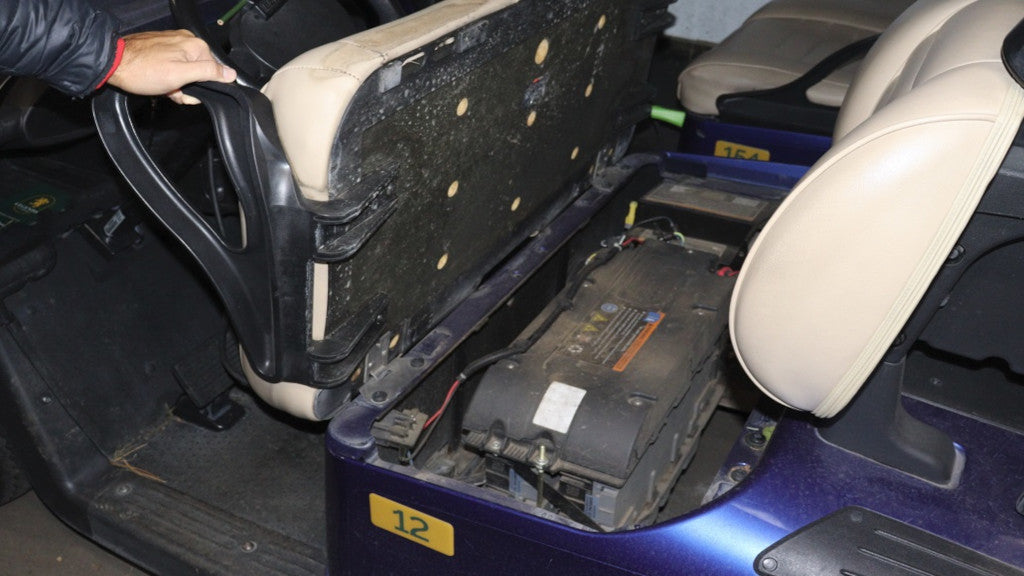 Two 48-volt rechargeable RoyPow Lithium batteries power each EZGO golf cart at Lionhead.
Two 48-volt rechargeable RoyPow Lithium batteries power each EZGO golf cart at Lionhead. Geoffrey Ellis is the Technician at Lionhead’s Golf Cart Maintenance Department
Geoffrey Ellis is the maintenance technician and small engine mechanic who keeps the golf carts running at Lionhead. He’s also a Hamilton-based paralegal who defends Canadian drivers against unjust traffic tickets.
Hidden away behind the scenes, Geoffrey is responsible for maintaining one-hundred and sixty-eight golf carts, four beverage carts, two carryalls, and two people-movers. He doesn’t concern himself with the lawnmowers, weed whackers, or any grounds keeping equipment. They’re contained in an enormous blue barn at the far end of the property where there are other mechanics on staff. Geoff’s job is to keep the golf carts running and in the month of November he puts the fleet into winter storage.
Last year, 2022, Mr. Ellis removed the lead acid batteries in Lionhead’s golf carts, converting the entire fleet to RoyPow lithium-ion batteries. RoyPow LiFePO4 S-Series Golf Cart Batteries are specifically designed to replace the lead-acid batteries in Club Car and EZGO golf carts. Geoff had a helper, but this was a Herculean task. Each cart required around thirty minutes service which means it must have taken him about 2 weeks to complete the job, rewiring and converting one hundred and sixty-eight vehicles.
As part of this initiative, Geoffrey spent another two weeks making the facility more amenable to the new lithium battery regime. The older chargers were swapped out for Lester Electrical 48 volt EZGO golf cart lithium battery chargers, and Delta-Q QuiQ battery chargers were installed on an overhead pipe-grid as part of a more efficient charging protocol. The new batteries can be recharged in less than three hours, while the older lead acid batteries were hooked-up all night.
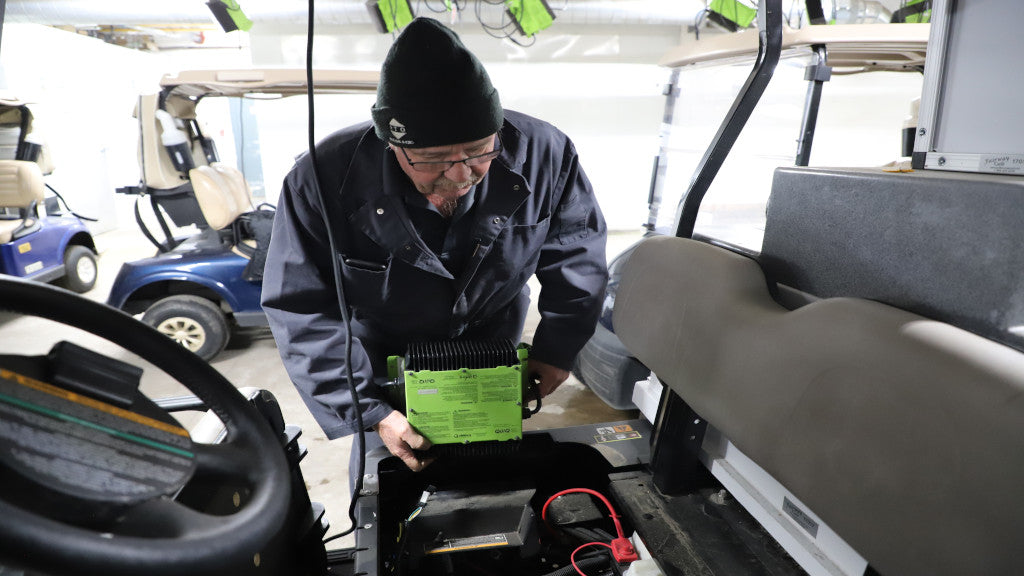 Geoffrey Ellis spent ten years as a Metro police officer before becoming Lionhead’s Lithium battery technician.
Geoffrey Ellis spent ten years as a Metro police officer before becoming Lionhead’s Lithium battery technician.How Does a Retired Police Officer and Paralegal Become a Lithium Battery Tech?
Geoffrey Ellis worked as a TV repair person before his career in law enforcement. He kept his natural passion and has always been interested in electronics, batteries, and gadgets. At one point in our discussion Geoff recalled how NiCad batteries once powered electric drills. At full charge, most would only drive a few dozen screws before acting and sounding tired. Rechargeable lithium designs dominate the power tools’ battery industry today because of their increased efficiency and how they stay full strength right to the end.
Similarly, the two 48-volt lithium golf cart batteries in Lionhead’s EZGO golf carts still have plenty of power at the end of every workday. Two full 18-hole rounds of golf, about six hours total use, requires only half of the new battery’s reserve. The upgraded energy storage system saves Lionhead time and money and increases reliability. Their carts conserve energy which improves the day-to-day operation of the golf business because less charging time means lower costs and more vehicles available for rentals. But how exactly do they manage all those lithium batteries over the winter months?
When we first met Geoffrey Ellis, he was labouring outside, actively preparing for inclement weather. Geoff was bundling golf carts together, covering them with polypropylene tarps and wrapping their sides in black plastic, being careful to leave the wheels and undercarriages free. Lionhead has so many electric vehicles, there just isn’t enough space inside their facilities to store their entire fleet.
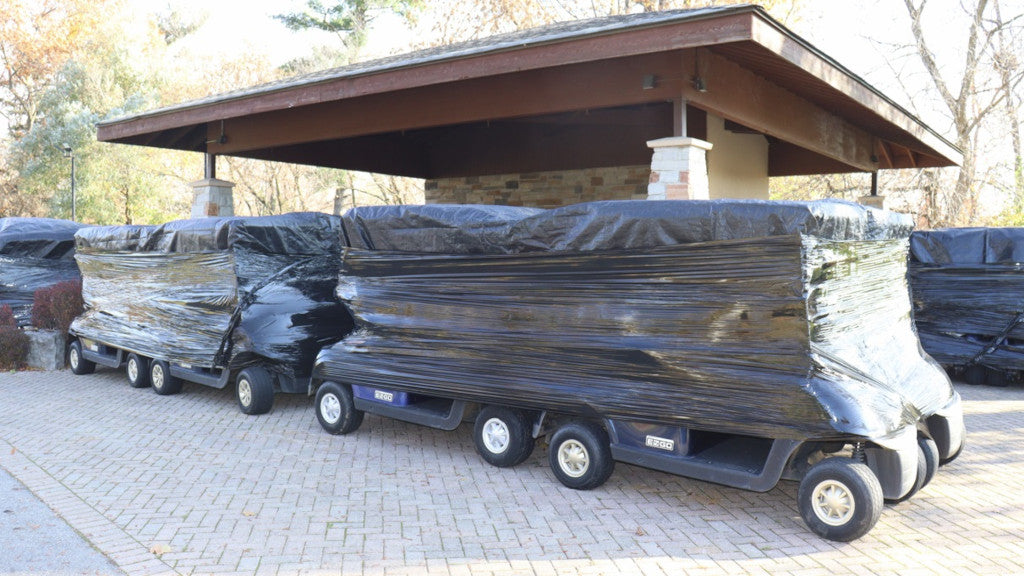
The bundled golf carts pictured above have no batteries inside. In addition to recording each vehicle’s serial number, the VINs we saw earlier, Geoff also removes their guts. He does this very carefully, moving and handling each lithium battery with care. The last thing he wants to do is drop one on a hard surface, or even to bump one against a sharp corner, or put pressure on the casing (by stacking them).
Over the winter, the fleet’s batteries are stored at full charge in a temperature-controlled environment. Similar to lead acid units, a lithium-ion battery stored overwinter will discharge on its own, but to a lesser degree. RoyPow batteries have circuitry inside which prevents them from powering anything when the cells’ voltage dips below a critical threshold of 2.8 volts, but that chip won’t stop the slow discharge which happens over winter. In addition to being stored inside, the batteries are shelved at waist height in the event of a burst pipe, or an unexpected flood, which has happened at other Kaneff golf courses in previous years.
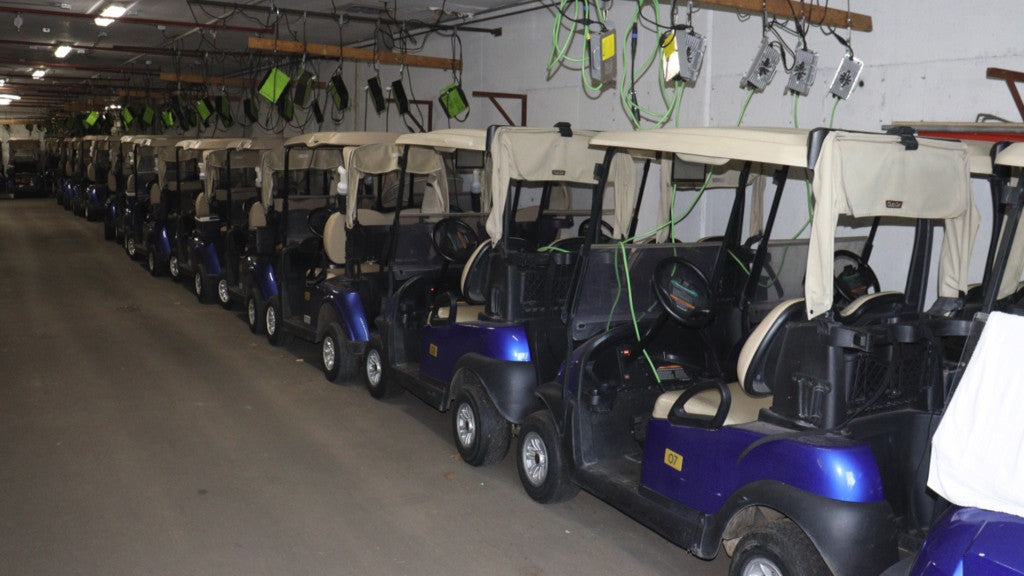 Inside the golf cart dormitory at Lionhead where electric carts sleep each night and spend the winter months.
Inside the golf cart dormitory at Lionhead where electric carts sleep each night and spend the winter months.Our list of questions for Geoffrey included a query about ‘flooded batteries’, in reference to flooded lead acid systems which Voltloop sells, and which Lionhead no longer uses. He must have misunderstood the question for he began telling us about incidents at the golf course where lithium batteries became flooded, meaning they were submerged in water. He recalled two occasions where EZGO golf carts were driven off-road into water obstacles. In both situations there were no criminal charges, or even extra monetary charges (as they were weather related accidents covered by insurance), but the damage was greater than the guests probably realized. The carts were fished out of the creeks but were not allowed back into circulation for some time. The batteries had to be removed and thoroughly dried, outside the building. Geoffrey won’t allow these units to be stored inside and they remain specially marked, and out of rotation. Lithium golf cart batteries and pond water don’t mix. If water infiltrates the battery casing, it will reduce performance and even render the unit inoperable, and there is an increased risk of fire.
Why did Lionhead Golf Choose Lithium Batteries for their Golf Carts?
For decades, deep-cycle flooded lead-acid batteries were believed to be the most cost-effective way to power electric golf carts. But with the success of lithium-ion batteries in household devices and now in vehicles like Tesla cars, it was just a matter of time before the leading golf cart battery manufacturers added lithium batteries to their product lines. Geoffrey Ellis believes lithium batteries are the best choice for Lionhead’s golf carts now and in the future. He’s quick to tout their advantages and more than once he rubbed his fingers together to signal cost savings.
1. Lithium batteries have a longer lifespan when compared to lead-acid batteries. This means Lionhead can expect fewer battery replacements over the next decade, resulting in reduced maintenance efforts. Most lithium batteries come with five-year limited warranties, yet the batteries are reputed to yield 3,500-4,000 cycles which is approximately ten golf seasons. So, despite an increased upfront cost, each lithium battery will save the business up to seventy percent of the cost of buying new batteries.
2. Lithium batteries are much lighter. A typical 8-volt lead acid battery weighs over 58 lbs., and a 48-volt EZGO cart requires six units linked in series to get the necessary power for the engine. These six batteries combined weigh about 350 lbs. The switch to lithium-ion batteries significantly dropped the weight of each cart as only one RoyPow 48-volt lithium-ion battery is enough to power the vehicle, (but the electric carts at Lionhead have two batteries to extend their range.) Each RoyPow model weighs approximately 37.5 lbs. and when two are wired together (to extend the range of the craft, not to meet the voltage requirements) their combined weight is only seventy-five pounds. Lighter golf carts positively impact course maintenance because it reduces the wear and tear on the turf and can improve the overall golfing experience.
3. Lithium batteries charge faster – Lionhead’s lithium batteries can be charged three times faster than the lead-acid batteries they replaced. This means their golf carts now spend less time in the charging station and more time out on the course.
4. Lithium batteries won’t slow down at the end of their shift: Lithium batteries provide a more consistent power output, so when golfers need to go uphill or venture into the rough, their conveyance will continue tirelessly. This results in more reliable performance, which is appreciated by golfers and can enhance their overall experience on the course.
5. Lithium batteries have more capacity than lead-acid batteries. This means golf carts equipped with lithium batteries have a longer range (70% depth of discharge) in a single cycle, compared to flooded lead acids at 50% depth of discharge. This further reduces the need to recharge during the workday.
6. Lithium batteries are considered more environmentally friendly than lead-acid batteries because they contain fewer hazardous materials and can be recycled more easily. This aligns with Lionhead’s sustainability goals and appeals to environmentally conscious golfers.
In the springtime, Geoffrey explains how the golf carts he’s bundling in plastic wrap today will be unwrapped, and pushed to the garage where their batteries will be tested and reinstalled. That will be a warm and sunny day in May he predicts, as lithium batteries cannot be recharged at temperatures below zero. He also forecasts a relatively trouble-free year as the reliability of the new lithium batteries means he can relax and focus on other things.
Are you operating a fleet of electric vehicles in Canada? Call Voltloop Canada for the best prices on batteries and chargers and let us walk you through the latest technology. We’ll explain how lithium batteries can make your electric vehicle fleet management a breeze.


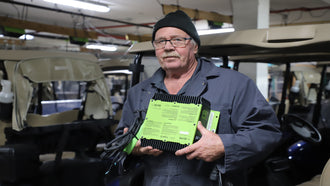
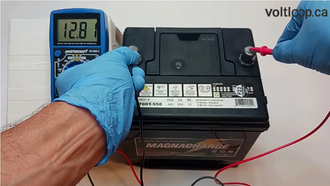
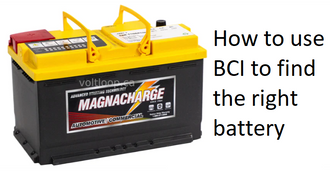
what is blue wire on charger and were does it go
Great read! Lionhead’s switch to lithium batteries for their golf carts is impressive. Faster charging, longer lifespan, and environmental benefits make it a smart, sustainable choice for the future.
I also write this type content. If you have time please check out my article and let me know how is it.
https://genuinegolfers.com/how-long-does-it-take-to-charge-a-48-volt-golf-cart/
In the age of AI instant-script, this first person POV account of real life place and situation is refreshingly authentic. Good work.